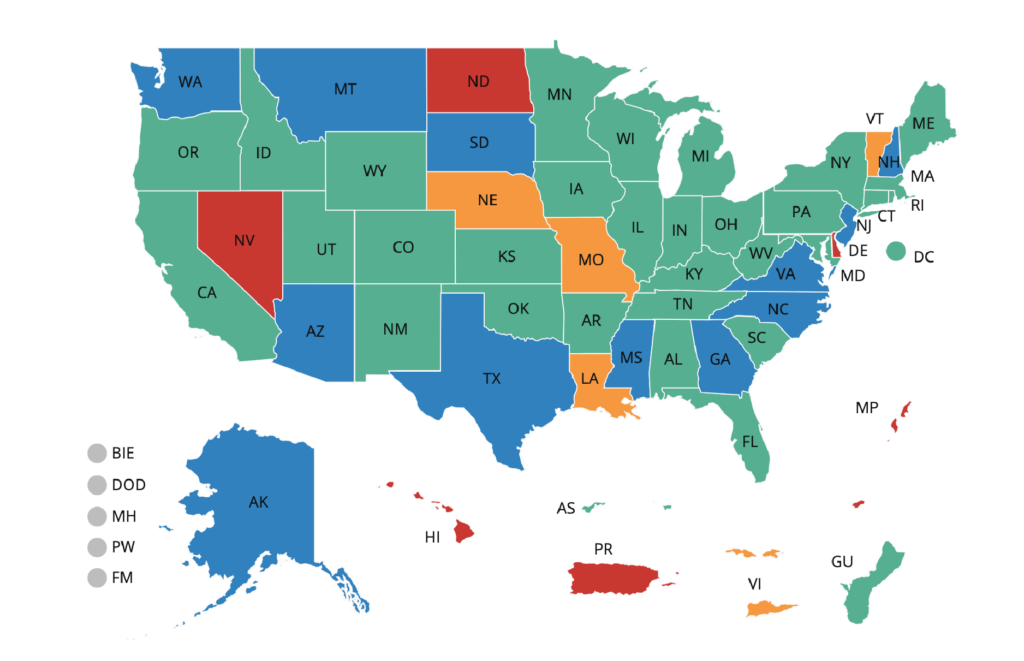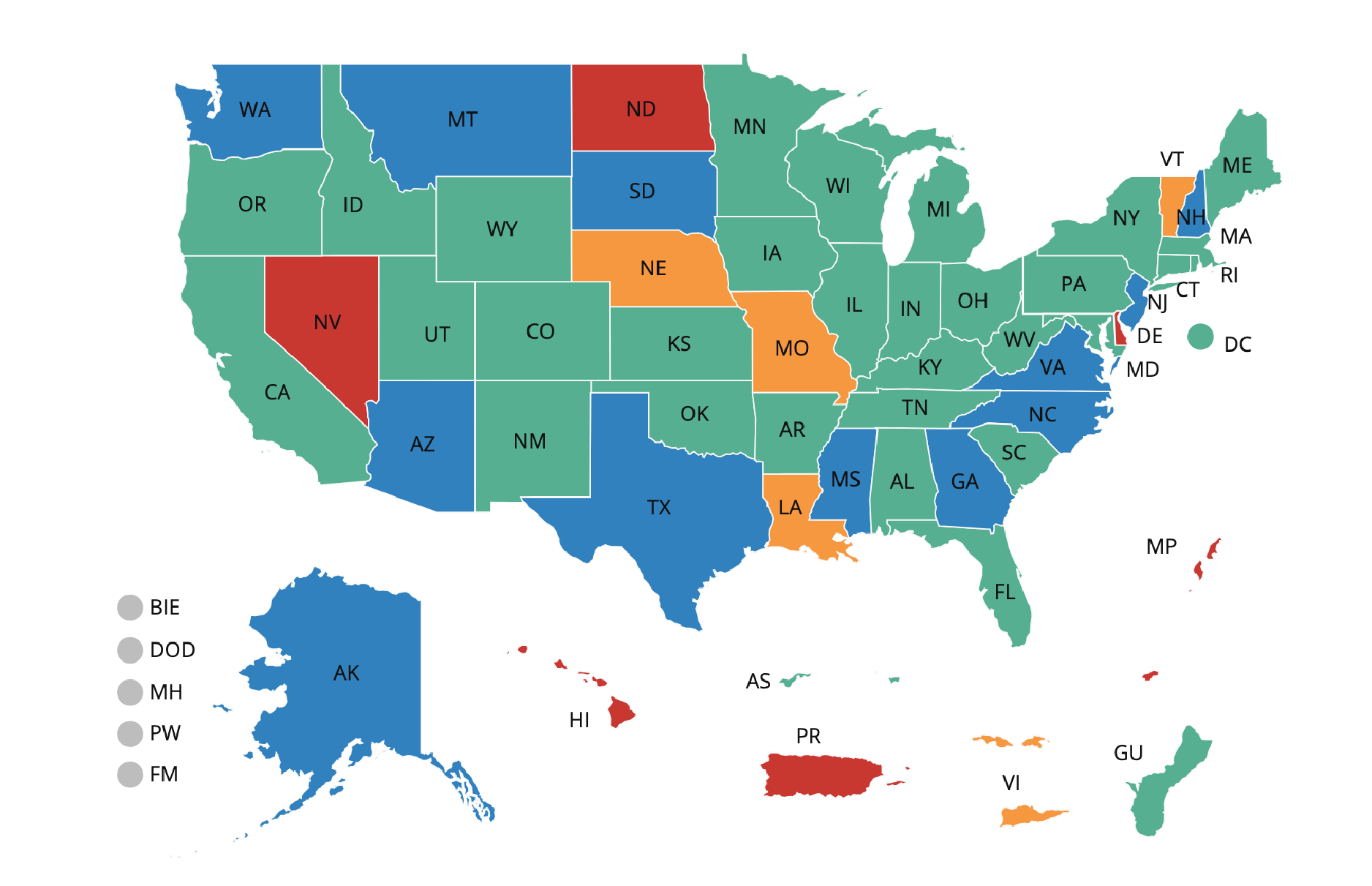Author(s): Linh Le
Contributor(s): Betsy Davies-Mercier, Ginger Elliott-Teague, Nancy Perez
At the DaSy Center, our mission is to support state early intervention and early childhood special education programs in building high-quality data systems and using data to improve outcomes for young children with disabilities and their families. Our recent state of the states survey provides national data on the elements and functions of Part C and Part B 619 data systems. Here’s a look at what we discovered and how it can drive equity and program improvement.
Background
The DaSy Center collaborates with state programs to enhance their data systems, enabling them to:
- Identify Inequities: Pinpoint disparities in access, services, supports, and outcomes.
- Improve Programming: Use data to refine and enhance service delivery.
To achieve these goals, states need:
- Comprehensive Data Elements: Information to answer critical questions about their service populations and programming.
- Data Linkage Capacities: The ability to connect data across various systems serving young children with disabilities and their families.
Method
Our 2023 survey targeted state coordinators from IDEA Part C and Part B 619 programs. With an impressive response rate from 55 states and territories, the survey provided a robust overview of current data system capacities.
Key Findings
Our findings revealed critical insights into the data elements, sharing, linking and integrating capacities, and common practices within state Part C and Part B 619 programs, highlighting areas of strength and opportunities for improvement.
Data Elements
All Part C and Part B 619 state data systems include information on child gender, race/ethnicity, and birthdate. Additional common child-level data elements are:
Part C:
- Referral source (98%)
- Primary language spoken at home (83%)
- Child’s primary language (76%)
- Socioeconomic status (70%)
Part B 619:
- Child’s primary language (84%)
- Socioeconomic status (70%)
- Homelessness (66%)
- Primary language spoken at home (62%)
Linking Data Elements within IDEA Programs
Percentage of State IDEA Programs Linking Data to Other Early Care and Education Programs:
Part C:
- Maternal, Infant, and Early Childhood Home Visiting (MIECHV) (28%)
- Other home visiting programs (20%)
- Child care (18%)
Part B 619:
- General education K-12 (78%)
- State PreK (57%)
- Quality Rating and Improvement Systems (QRIS) (43%)
Percentage of State IDEA Programs Linking Data to Other Health & Human Services Programs:
Part C:
- Early Hearing Detection and Intervention (EHDI) (63%)
- Medicaid/SCHIP (56%)
- Vital statistics (22%)
Part B 619:
- Homeless services (33%)
- Medicaid/SCHIP (25%)
- Child welfare (20%)
Conclusion
Our survey reveals that most Part C and Part B 619 programs are committed to program improvement and equity analysis over the next two years. By leveraging comprehensive data elements and enhancing sharing, linking and integrating capacities, states can better serve all children and families, ensuring equitable opportunities and outcomes. For detailed survey findings and interactive maps, visit our recently updated State of the States 2023 pages.
DaSy Resources
- Critical Questions for Addressing Racial Equity in Early Intervention and Early Childhood Special Education
- Updated State of the States 2023 Maps
- State of the States 2023: State Data Systems’ Capacity to Support Program Improvement and Equity Efforts
About the Authors & Contributors

Linh Le is a Communications Specialist at SRI. She currently supports communications for the Center for IDEA Early Childhood Data Systems (DaSy), managing the center’s social media efforts and blog.

Betsy Davies-Mercier leads evaluation activities for the DaSy Center, provides technical assistance, and supports the development of resources to advance data use in program improvement. She also supports the production and dissemination of technical assistance resources for DaSy.

Ginger Elliott-Teague Works with states and agencies to promote high quality data and data systems to support early intervention and early childhood special education programs.

Nancy Perez has experience in quantitative and qualitative data collection, project management, and coordination. Her responsibilities include project management support, quantitative and qualitative data collection (e.g., extant data reviews, focus groups, and surveys) and coordination.
Published October 28, 2024.



